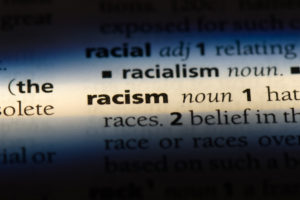If you bring a claim for personal injury you will have to answer questions. The one thing your attorney can’t do for you in your case is testify for you. At some point the client has to testify. Listening to my clients answer questions in my office, in depositions and at trial, I have learned the mistakes that people make when answering questions.
As you have seen in the other articles in this series, the questions come from the police, sometimes the other party at the scene of the accident, ambulance drivers, doctors, nurses, physical therapists, your attorney and her or his staff, insurance adjusters, the attorney for the other side and even the Judge. To get a good context for the various situations where you will have answer questions, I have listed links to the other articles in the series so you can see how and when these situations will arise.
What you need to know to answer any question in any situation is basically the same. The rules and suggestions that I make here apply to all situations. Before answering a question, even from your own attorney, think about the following suggestions.
You should only say what you know. And when you say what you know it is important that you explain how you got the knowledge. That’s it. I could quit now and you should be fine as long as you follow those two steps. Of course it is more complicated than that I will walk you through the exact steps and thought processes that you should follow.
Let’s start with an example.
Assume that you were in your car with two passengers, one in the right rear passenger seat, when a car on a cross street ran a red light and T-boned your car on the passenger side on the rear quarter panel. You did not see the car because your attention was focused forward.
Your rear passenger saw the car coming and saw the drivers face looking back into his back seat just before the collision, then looking forward and screaming at the cars collided. You saw him turning his wheel as if he wanted to swerve his car but it was too late.
In my first interview with you I ask you about the collision. You tell the story by reciting the facts that you got from your friend who saw the collision. You tell me:
I was driving at the speed limit and going through the intersection with the green light when a car came through the red light from my right and hit my car at 90 degrees on the rear quarter panel. The other driver was looking into the back seat as he ran the red light. He spun his head around just before impact, tried to swerve his car by turning the wheel but it was too late and we collided.
You get a D+ for this answer. We have a lot of work to do.
First, let me give you the rules of answering questions:
1. Listen to the question. Then stop. What I mean is don’t start talking yet. Slow done.
2. Ask yourself: "What do I know about this question. Then stop.
3. You know:
what you see.
what you hear.
what you feel – touch and emotion.
what you think.
4. Stop and gather your thoughts.
5. Answer the question.
You didn’t see the other driver or even the car before the collision. So what do you know about what the other driver was doing just before the collision? No, the answer isn’t "I know nothing because I couldn’t see the driver. You know that after the collision you spoke with your friend and he told you what he saw. What you don’t know is whether his account was accurate. So just state what you know. Here’s a good answer to the question:
We were headed north and I was going 30 mph. I don’t recall when I looked at the speedometer but I normally look at the speedometer often to make sure I’m not speeding. I got ticketed for speeding when I was a kid and my parents busted me. I never speed!
As I approached the intersection I saw the light for my street change from red to green about 100 yards (you went back and took a look at the intersection and drove through a few times to make sure your recollection was correct). I heard no one in my car talking.
As I drove through the intersection. I saw no cars at the intersection. I was about to pass over the crosswalk on the other side when I heard a scream from the back seat of my car and, at about the same time, I heard a short screech of tires from the right rear. Then I felt a huge jolt from the right, felt my neck light up like a very intense shock wave slamming into my body. The cars spun and stopped. I checked my passengers and they said that they were okay.
While we waited for the police and ambulance, my passengers and I talked. The rear seat passenger told me that he saw the collision, saw the other driver looking into the backseat of his car just before the impact, etc. etc. He told me ……
We all talk to fast and think too little when answering questions on serious subjects, Your case is a serious subject.
The major mistake that most witnesses make is not taking the time and using the energy to add in the details about where they got the information about what happened. Adding in "i did not see it" or "my friend told me" is unbelievably important. Why? Because maybe the friend got it wrong. If that happens, and it does, you won’t go down because your friend got it wrong. Your testimony is the "I didn’t see ……, but my friend told me ….. ."
Always attribute your statements to where you got them
The key to answering questions is to be honest and make sure _ up front _ that the listener knows where you got the information. Remember that you are just a witness and that integrity of the civil justice system demands accurate and truthful answers to all questions. To be accurate, you must focus on what you know.
Its okay to say "I don’t know" and most attorneys will advise their clients to phrase that answer as "I don’t recall at this time."
This works with spouses and kids and even that conversation with yourself. Be honest. Think about what you know.
For background on all of the things a person needs to know about bringing a case for personal injury read the other articles in this series of tips and practical suggestions about what happens ina real case:
I was in an automobile accident. What should I do? Ten Tips For Hawaii Drivers, Wayne Parsons on September 14, 2009 – 3:59 AM EST.
What would a caveman bring to meet with the lawyer?, Steve Lombardi , September 15, 2009 11:00 AM
Solving Legal Problems, Being a Client, Back to the Basics, Steve Lombardi , September 15, 2009 8:48 AM
Car Accident Injury Client: What Makes the Case Good or Bad? (The Collision & Medical Care) , Rick Shapiro September 16, 2009 9:38 AM
Being a Client: More Tips To Help Improve Your Case If You’ve Been In An Car Accident , Devon Glass , September 17, 2009 8:39 AM
Presumed Guilty: How to Avoid Having Insult Added to Injury When You’ve Been Hurt in a Car Crash, Pierce Egerton , September 18, 2009 4:28 PM
What To Do After An Accident When The Adjuster Is There First, Mike Bryant | September 19, 2009 6:26 PM
What Questions Is The Lawyer Going To Ask Me At The Initial Interview For My Injury Or Death Case?, Wayne Parsons | 20 September 2009 12:01
What makes a case good or bad?, Steve Lombardi, 21 September 2009 12:57 PM
What To Do After An Accident When The Adjuster Has A Tape Recorder, Mike Bryant , September 23, 2009 10:01 PM
Do I have a good or a bad case?, Devon Glass, September 24, 2009
What are interrogatories and how do I answer them?, Steve Lombardi, September 29, 2009
Interrogatories: A Written Deposition , Devon Glass, September 30, 2009
How Do You Value Your Case? Mike Bryant October 03, 2009 9:29 AM
These articles will prepare anyone for what lies ahead when they are injured or a family member or friend is killed and a claim is being being brought for money damages. Now its your turn to ask questions!

A resident of Honolulu, Hawaii, Wayne Parsons is an Injury Attorney that has dedicate his life to improving the delivery of justice to the people of his community and throughout the United States. He is driven to make sure that the wrongful, careless or negligent behavior that caused his clients' injury or loss does not happen to others.










4 Comments
Steve Lombardi
This is a subject I really enjoy talking about. It's one that people can't appreciate until they are involved in litigation and need to testify under oath. Well done. Hope all is safe in Hawaii.
Mike Bryant
I like the way you break the process down for the person. The big mistake I see is that people try to answer the next question or to head a question off. I always tell people that the other person comes in with questions they will ask no matter what, when you don't answer those questions, you not only get the question again, but you often get more questions. Best way to get through the deposition, is to answer the question.
Wayne Parsons
Mike: Good point. Maybe you can elaborate on that in another article?
Pierce Egerton
Wayne I was preparing a witness yesterday and used your the example from this post. thanks!!
Comments for this article are closed.